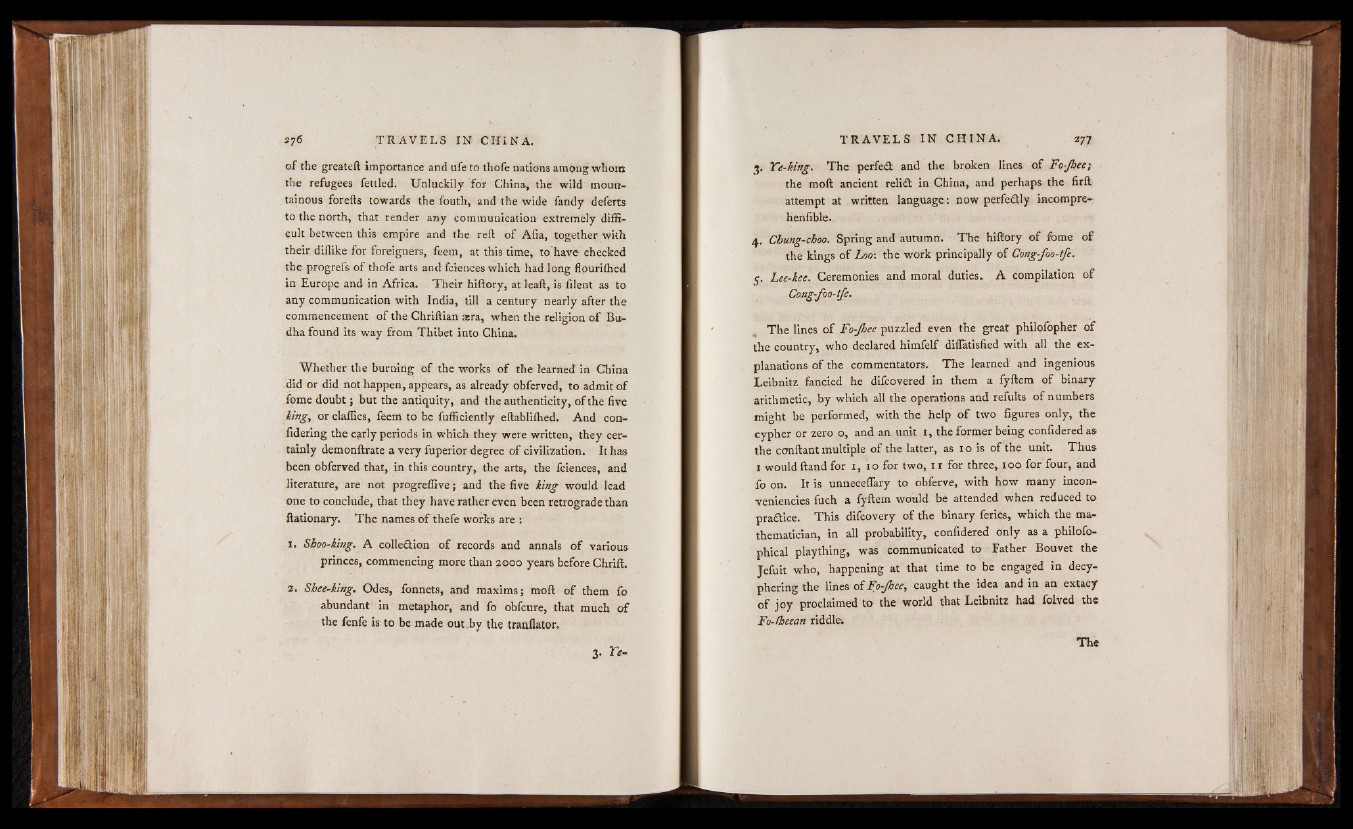
o f the greateft importance and ufe to thofe nations among whom
the refugees fettled. Unluckily for China, the wild mountainous
forefts towards the fouth, and the wide fandy deferts
to the north, that render any communication extremely difficult
between this empire and the reft o f Alia, together with
their diilike for foreigners, feem, at this time, to have checked
the progrefs o f thofe arts and fciences which had long flouriihed
in Europe and in Africa. Their hiftory, at leaft, is filent as to
any communication with India, till a century nearly after the
commencement o f the Chriftian asra, when the religion o f Bu-
dha found its way from Thibet into China.
Whether the burning o f the works o f the learned in China
did or did not happen, appears, as already obferved, to admit o f
fome doubt; but the antiquity, and the authenticity, o f the five
king, or claffics, feem to be fufficiently eftabliffied. And con-
fidering the early periods in which they were written, they certainly
demonftrate a very fuperior degree o f civilization. It has
been obferved that, in this country, the arts, the fciences, and
literature, are not progreffive; and the five king would lead
one to conclude, that they have rather even been retrograde than
ftationary. The names o f thefe works are 1
1. Sboo-ktng. A colle&ion o f records and annals o f various
princes, commencing more than 2000 years before Chrift.
2. Sbee-king. Odes, fonnets, and maxims j moft o f them fo
abundant in metaphor, and fo obfcure, that much o f
the fenfe is to be made out.by the tranflator.
3. Ye-king. T he perfect and the broken lines o f Fo-Jhee;
the moft ancient reli£t in China, and perhaps the firft
attempt at written language: now perfe&ly incompre-
henfibte.
4. Cbung-cboo. Spring and autumn. The hiftory o f fome o f
the kings o f Loo\ the work principally o f Cong-foo-tfe.
5. Lee-kee. Ceremonies and moral duties. A compilation o f
Cong-foo-tfe.
T he lines o f Fo-Jhee puzzled even the great philofopher o f
the country, who declared himfelf diffatisfied with all the explanations
o f the commentators. The learned and ingenious
Leibnitz fancied he difcovered in them a fyftem o f binary
arithmetic, by which all the operations and refults o f numbers
might be performed, with the help o f two figures only, the
cypher or zero o, and an unit 1, the former being confidered as
the conftant multiple o f the latter, as 10 is o f the unit. Thus
1 would ftand for L 10 for two, 1 r for three, to o for four, and
fo on. It is unneceflary to obferve, with how many incon-
veniencies fuch a fyftem would be attended when reduced to
pra&ice. This difcovery o f the binary feries, which the mathematician,
in all probability, confidered only as a philofo-
phical plaything, was communicated to Father Bouvet the
Jefuit who, happening at that time to be engaged in decy-
phering the lines o i Fo-Jhee, caught the idea and in an extacy
o f jo y proclaimed to the world that Leibnitz had folved the
Fo-lbeean riddle.
The